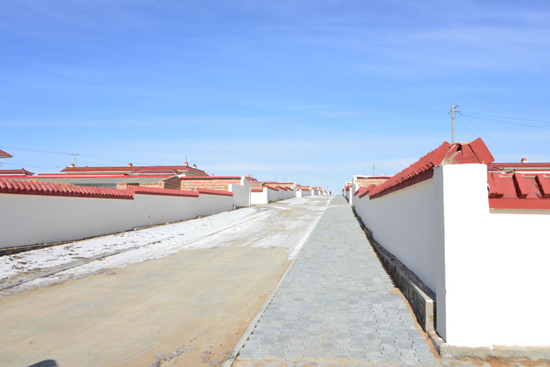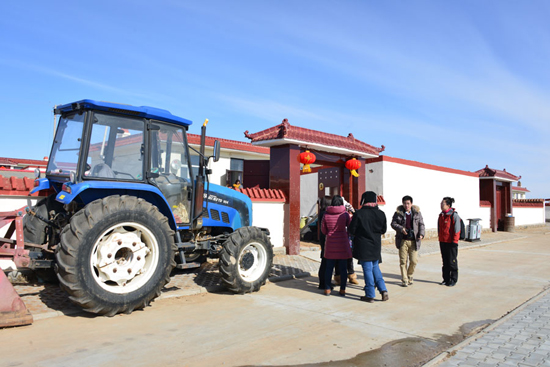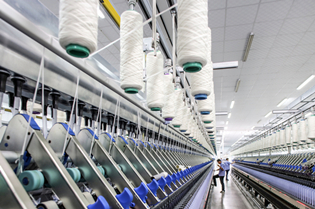A Peek into the Life of a Farmer in Inner Mongolia
 |
|
The village of Xingfucun with 100 new homes photographed on February 12, 2015. It is located about 160 km north of Hohhot, capital of the Inner Mongolia autonomous region. The Chinese government has poured in over 490 million yuan to construct a series of such model villages in rural Inner Mongolia. [Photo/CRIENGLISH.com] |
 |
|
Outside Liang's new home on February 12, 2015. Liang Yinshuan earns about 40,000 yuan per annum by growing potatoes, wheat and raising black hogs that is a specialty of this area. A kilogram of this special black hog sells for about 700-800 yuan in high-end supermarkets in Shanghai. [Photo/CRIENGLISH.com] |
But along with the rapid economic development in China, the remote villages in Inner Mongolia have also been transformed. We visited the house of Liang Yinshuan, a farmer who has recently settled in the newly built model village of Xinficun, in Damaoqi county, about 160 km north of Hohhot, capital of the Inner Mongolia autonomous region. The village has 100 new houses. The Chinese government has poured in over 490 million yuan ($78 million) to construct a series of such model villages in rural Inner Mongolia.
Liang Yinshuan and his wife are now the proud owners of a spacious 600-square-meter house. Their children who are working in a larger city, used to stay in other houses, due to the lack of space and poor conditions, when they came to visit. But now, the children visit often, and spend more time with their old parents.
The new house also has central heating, piped water and a standard toilet. Earlier, the family used to sleep on a traditional Kang, a heated bed. But they had to use firewood for heating, and cleaning the ashes in the morning, which would leave their hands and faces smeared in soot. But now all this woes are a matter of the past.
Liang Yinshuan also earns about 40,000 yuan per annum by growing potatoes, wheat and raising black hogs that is a specialty of this area. A kilogram of this special black hog sells for about 700-800 yuan in high-end supermarkets in Shanghai.



 Print
Print Mail
Mail





